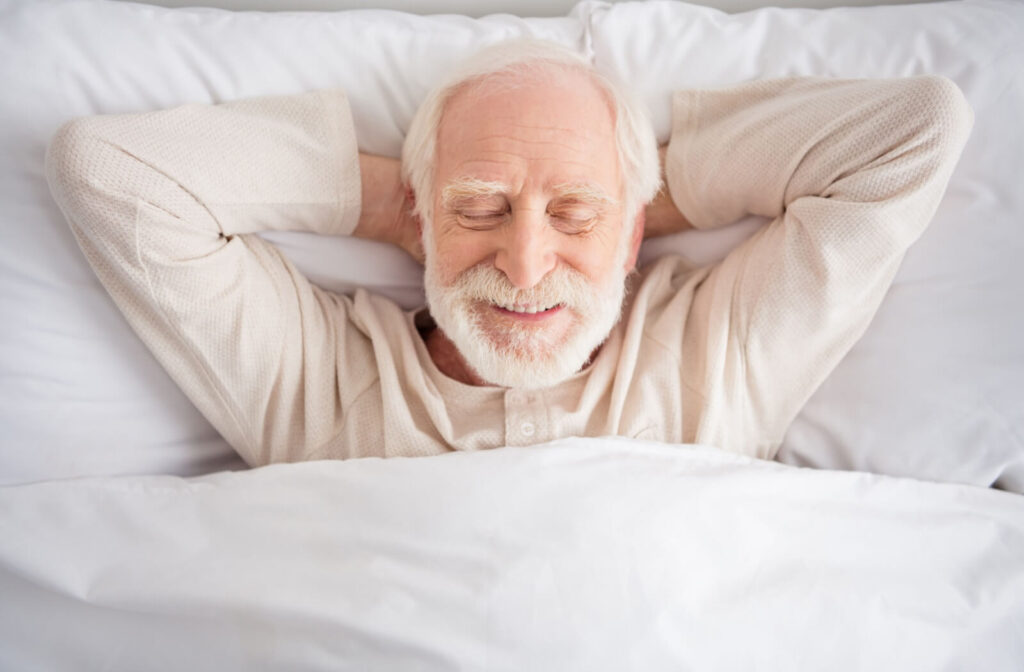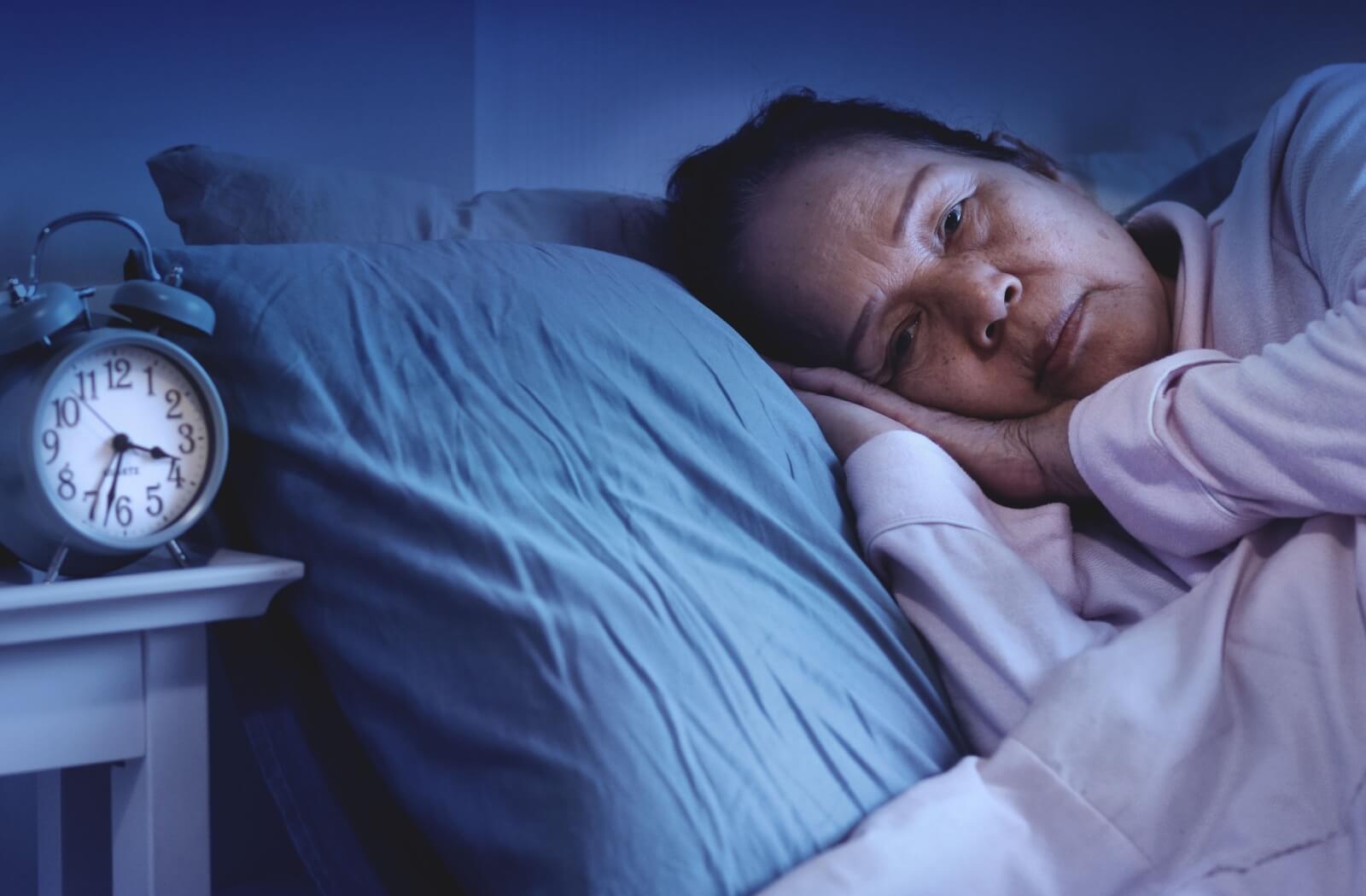Sleep isn’t just about feeling refreshed the next day. For seniors, quality sleep plays a crucial role in maintaining physical health, cognitive function, and emotional well-being.
However, sleep challenges become increasingly common as we age. While some health conditions, like dementia, can contribute to poor sleep, many seniors experience poorer sleep quality due to normal age-related changes in their sleep patterns.
If you or a loved one is experiencing restless nights, frequent wake-ups, or feeling tired despite spending hours in bed, you’re not alone.
Understanding why sleep patterns change with age—and knowing that there are practical solutions, such as senior living communities designed to promote quality rest—can help you reclaim the restorative sleep you deserve.
Why Sleep Matters More as We Age
Quality sleep becomes even more crucial as we age. During sleep, our bodies repair tissues, consolidate memories, and strengthen our immune systems.
For seniors, adequate rest helps maintain balance and coordination, reducing the risk of falls. It also supports heart health, helps regulate blood sugar levels, and plays a vital role in mental clarity and mood stability. Sufficient sleep also helps lower the risk of dementia.
Unfortunately, many older adults find themselves getting less sleep than the recommended 7 to 9 hours per night. Sleep deficit can impact everything from medication effectiveness to social interactions, making it harder to enjoy daily activities and maintain independence.
How Aging Naturally Affects Sleep
Our sleep patterns undergo several changes as we age, many of which are normal parts of the aging process. Understanding these changes can help alleviate concerns and inform more effective sleep strategies.
Sleep architecture—the structure of our sleep cycles—shifts with age.
Older adults typically spend less time in deep sleep phases and more time in lighter sleep stages. Seniors might wake up more easily from sounds or other disturbances that wouldn’t have bothered them when they were younger.
Many seniors also experience a shift in their circadian rhythms, often feeling sleepy earlier in the evening and waking up earlier in the morning. This natural change in your body’s internal clock can work to your advantage once you adjust your schedule accordingly.
Common Sleep Concerns Among Older Adults
Several specific sleep disorders become more prevalent with age. Recognizing these conditions is the first step toward finding practical solutions.
Insomnia
Insomnia affects up to 50% of older adults, making it the most common sleep complaint in this age group. This condition involves difficulty falling asleep, staying asleep, or waking up too early.
Seniors with insomnia often lie awake worrying about their inability to sleep, creating a frustrating cycle that can persist for weeks or months.
Sleep Apnea
Sleep apnea causes breathing to stop and start repeatedly during sleep. The condition becomes more common with age and can lead to loud snoring, gasping during sleep, and excessive daytime fatigue.
Many people with sleep apnea don’t realize they have it since the symptoms occur while they’re unconscious.
Restless Legs Syndrome (RLS)
Restless leg syndrome (RLS) creates uncomfortable sensations in the legs, typically in the evening or at night, accompanied by an irresistible urge to move them. The condition can make it extremely difficult to fall asleep or return to sleep after waking up during the night.
Excessive Daytime Sleepiness
While some daytime fatigue is normal, excessive sleepiness that interferes with daily activities isn’t a typical part of aging. The condition can stem from poor nighttime sleep quality, medication side effects, or underlying health conditions.
Circadian Rhythm Disturbances
These disorders occur when your internal body clock becomes misaligned with your desired sleep schedule. Seniors might find themselves falling asleep at 6 PM and waking up at 3 AM, making it challenging to maintain regular social and activity schedules.
Factors Contributing to Sleep Problems
Multiple factors can contribute to sleep difficulties in older adults.
Medical Conditions & Medications
Conditions such as arthritis, heart disease, or diabetes can cause discomfort that disrupts sleep. Medications for these conditions may have side effects that impact sleep quality.
Lifestyle Changes
Older adults can experience transitions, such as moving to a new home or assisted care, which can temporarily disrupt sleep patterns. Increased stress or anxiety from health concerns, changes around the home, or the loss of loved ones can also impact sleep.
Reduced physical activity levels, often due to retirement, can also affect how easily you fall asleep and the quality of your sleep.
Environmental Factors
Exposure to light, particularly from electronic devices, can interfere with the natural production of sleep hormones. An uncomfortable bedroom that’s too warm, too cold, noisy, or poorly set up for rest can make a restful sleep feel out of reach.
How Senior Living Promotes Quality Rest

The good news is that sleep challenges don’t have to be permanent. The right environment, support, and resources can dramatically improve sleep quality for older adults.
Comfortable Accommodations
Well-designed living spaces specifically created with seniors’ needs in mind can significantly impact sleep quality.
Rooms feature comfortable mattresses and bedding, adjustable room temperature control, and noise-reducing features. Bedrooms often include blackout options for light control and easy-to-reach lighting for nighttime safety.
Night Support Services
Having professional support available during nighttime hours provides peace of mind that can improve sleep quality.
Knowing that trained staff members are nearby and available to assist with any needs—whether it’s help getting to the bathroom safely or addressing a health concern—can reduce nighttime anxiety and promote more restful sleep.
Wellness Programs
Comprehensive wellness programs, such as the Stronger Living program, address sleep quality through multiple approaches.
These programs include personalized exercise routines to improve sleep quality, stress management techniques, and health monitoring to identify and address underlying conditions that affect sleep.
The Stronger Living program adopts a holistic approach to health and wellness, featuring a full-time wellness director, an exercise physiologist, and various therapists collaborating to address individual needs.
Comprehensive support can help manage conditions such as arthritis or heart disease that may be interfering with sleep while also promoting overall health and vitality.
Taking the Next Step Toward Restful Sleep
Quality sleep is not a luxury—it’s a necessity for the healthy aging process. With the right approach and support, peaceful, restorative nights can become your new normal.
All American Assisted Living in Tinton Falls prioritizes sleep health through comfortable accommodations, professional night support, and comprehensive wellness programs. Contact us today to discover how the right environment and support system can not only improve your sleep but also enhance your overall quality of life.





